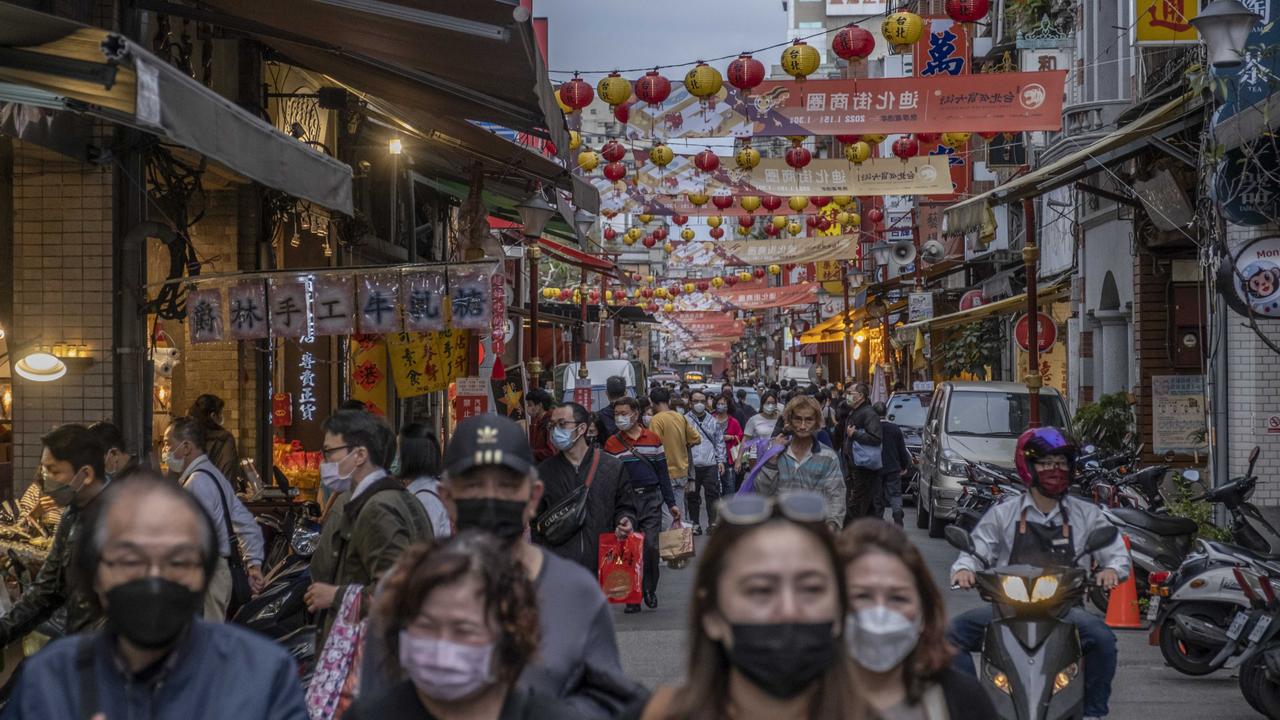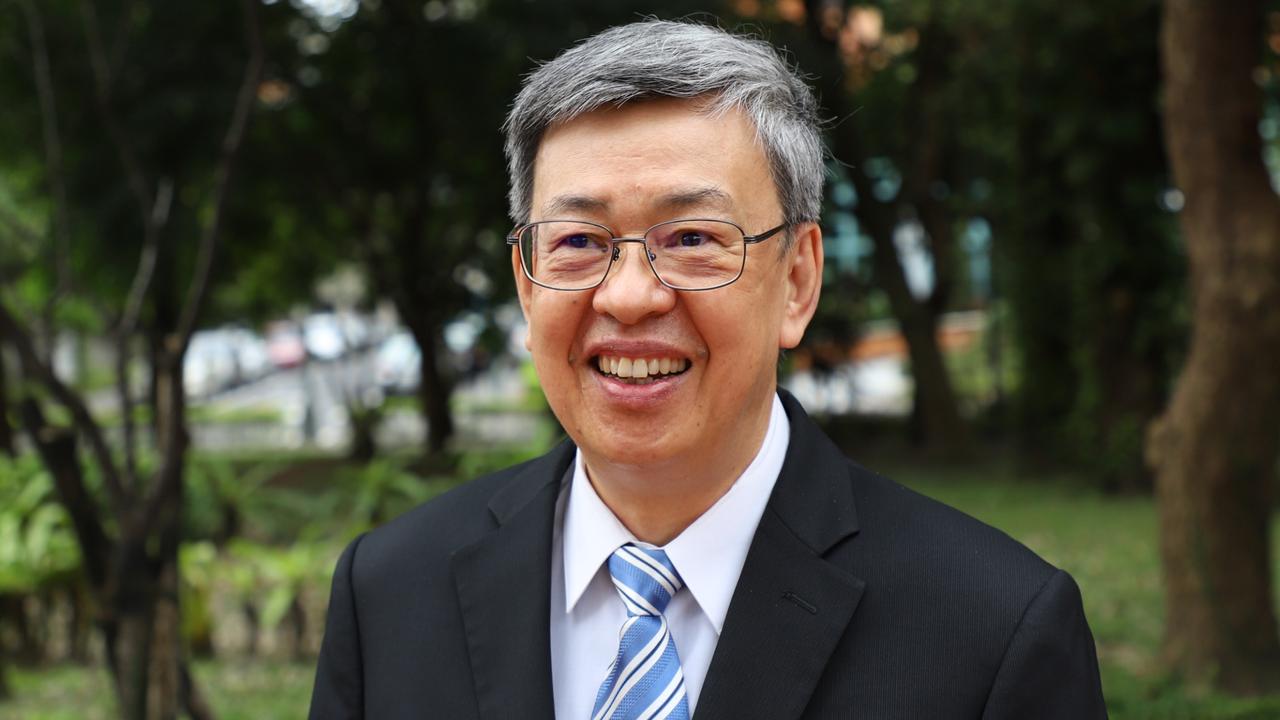Taiwan forced to reconsider Covid zero plan, time to ‘live with virus’
After two years of keeping Covid cases and deaths to a fraction of those observed in other countries, cracks are beginning to show in Taiwan’s Covid-zero approach.

In two years since Covid-19 began its quick spread around the globe, Taiwan has recorded a total of 19,515 cases and 851 deaths.
The densely populated country has a land mass that equals just more than half of Tasmania, and yet its population of 23.57 million is comparable to Australia’s 25.69 million. When it comes to the pandemic however, Australia has recorded more than 2.9 million cases and 4593 deaths.
However, as countries around the world begin to transition to a model that sees them living with Covid, or scrapping pandemic restrictions altogether, Taiwan is one of the handful of countries holding onto the dream of Covid-zero. Until recently.
Cracks begin in Covid-zero scheme
From the beginning of the pandemic to now, Taiwan has only had one major Covid outbreak.
The brief spike of cases from May to July 2021 saw daily numbers peak to 670, however infections have increased from six cases on December 29 to a current seven-day case average of 59 and an outbreak high of 129 new daily infections.
However, unlike Taiwan’s outbreak in the summer of 2021, which was spurred on by what was the virulent Delta strain, the Omicron variants increased infectiousness has made it difficult to control new infections, with cases plateauing between the mid-50s to mid-90s in the past four weeks.
It’s also resulted in a shift in disease management.
While Health Minister Chen Shih-chung continued to lobby the goal “to get back to zero” on January 25, he was forced to change tactics in just a few days later, as the country was on the cusp of its biggest annual holiday – Lunar New Year.
“We need to get on with our lives, so everyone should be responsible for disease prevention and get vaccinated, as remaining vigilant has become the ‘new normal’,” said Mr Chen.
In doing so, this would look at championing preventive and risk-mitigating measures like vaccination, mask-wearing, social distancing and avoiding crowded gatherings.

From Covid-zero to living with Covid
Prominent epidemiologist and former Vice President of Taiwan, Chen Chien-jen said that Omicron would make it difficult for the country to continue with a strategy purely dependent on eradication.
“Covid is not the Covid of before. We already have good defences,” Professor Chen toldThe Australian.
Mr Chen became Taiwan’s health minister during the height of the country’s SARS epidemic in 2003 and worked to prepare the country for the next potential outbreak. When Covid hit, he was instrumental in containing the virus, implementing strategies like rationing masks and screening travellers without resorting to a nationwide lockdown.

However, given Taiwan’s high vaccination rate – 74.7 per cent of the population have received two doses of the vaccine, with 27.6 per cent of the population having received three doses – Mr Chen says it is time for the country to transition to ‘living with Covid’.
“I always try my best to convince people in Taiwan, if you’ve got the two doses or three doses of the vaccine, then you’re going to live with the virus.
“Don’t worry about that.”
Countries still aiming for Covid-zero
While countries like Denmark, Norway and Sweden have moved to scrapping their remaining Covid restrictions, Taiwan is among a handful of countries still committing to Covid-zero.
While authorities have largely avoided implementing a lockdown in order to kerb cases with mild restrictions imposed on residents, Taiwan has maintained an isolationist policy to keep Covid cases from entering its borders.
A similar approach has been taken by fellow Covid-zero countries like China, Hong Kong and arguably the state of Western Australia.
The Strait Times reported that currently 60 per cent of the country’s cross-strait and international flight routes have been paused indefinitely, with fears strict border control may prevent investors from seeking funding and manufacturing opportunities in Taiwan.
Despite most countries scrapping the two-week hotel or external quarantine period for international arrivals, the mandate is still in force for international arrivals entering Taiwan. Like the rules observed in China, the two-week external quarantine is then followed by seven days of self-managed semi-isolation.
Travellers without a residency permit, or those who aren’t long-term or permanent residents of Taiwan are also barred from entering the country, with some exceptions considered on emergency or humanitarian grounds.






